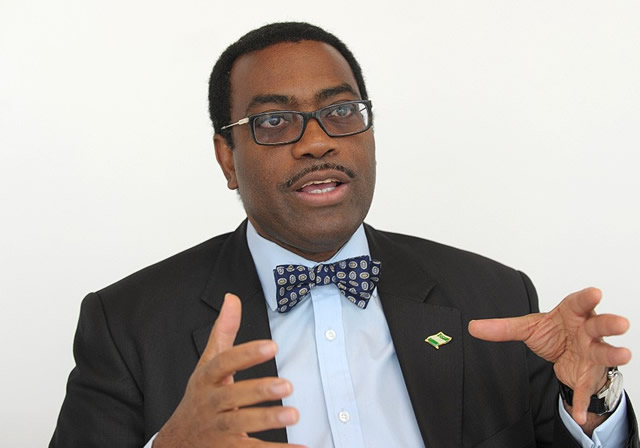Only one percent of Nigerians are receiving university education — Adesina


Dr. Akinwumi Adesina, President of the African Development Bank Group, stated that only 1% of Nigerians are enrolled in university study.
Adesina made this statement during his remarks at the Obafemi Awolowo Prize for Leadership 2024 award ceremony.
Adesina, the award recipient, noted that Nigeria currently does not educate enough of its people at the university level.
His lecture, ‘Making a New Nigeria: Welfarist Policies and People-Centered Development,’ discussed rural economic transformation and food security, healthcare security for all, education for all, access to affordable housing for all, and government accountability and fiscal decentralisation for true federalism.
Speaking on ‘education for all, he emphasised that a well-educated citizenry was critical for technological growth and development.
He said, “With only one per cent of the population enrolled, Nigeria is currently not educating enough of its people at the university level. The poor funding of universities, a lackof basic infrastructure, poor incentives for faculty and staff, and incessant strikes due to wage disputes, have almost crippled the university system.
“A well-educated citizenry is critical for technological growth and development, and for fostering creativity, innovation, entrepreneurship and global competitiveness. We do not have a choice. A highly educated Nigeria is not an option. It is an imperative.”
He added that the poor funding of universities had led to the mass exodus out of Nigerian universities, with 128,770 Nigerian students moving to study in UK Universities alone, between 2015 and 2022, according to the Higher Education Agency of the United Kingdom.
“This human capital hemorrhage will slow down economic growth, performance and overall development and competitiveness of the economy.While one might argue that a growing diaspora is good as they send home some $ billions which is higher than the oil export earnings, this is not the way to develop sustainably.”
Speaking on basic education, he added, “Nigeria accounts for 15 per cent of the total population of out-of-school children, according to UNICEF, with over 10.2 million at the primary school level, and 8.1million at the Junior Secondary School. This is not a gold medal Nigeria should be proud of.
“The problem is both acute and alarming in Northern Nigeria. Urgent public policies, coupled with community sensitization and incentives for schooling are needed, if this trend is to be reversed. Public incentives such as free and compulsory primary and secondary education should be put in place, along with massive investments in training and better salaries for teachers, building quality and safe classrooms, and school feeding programs.”








